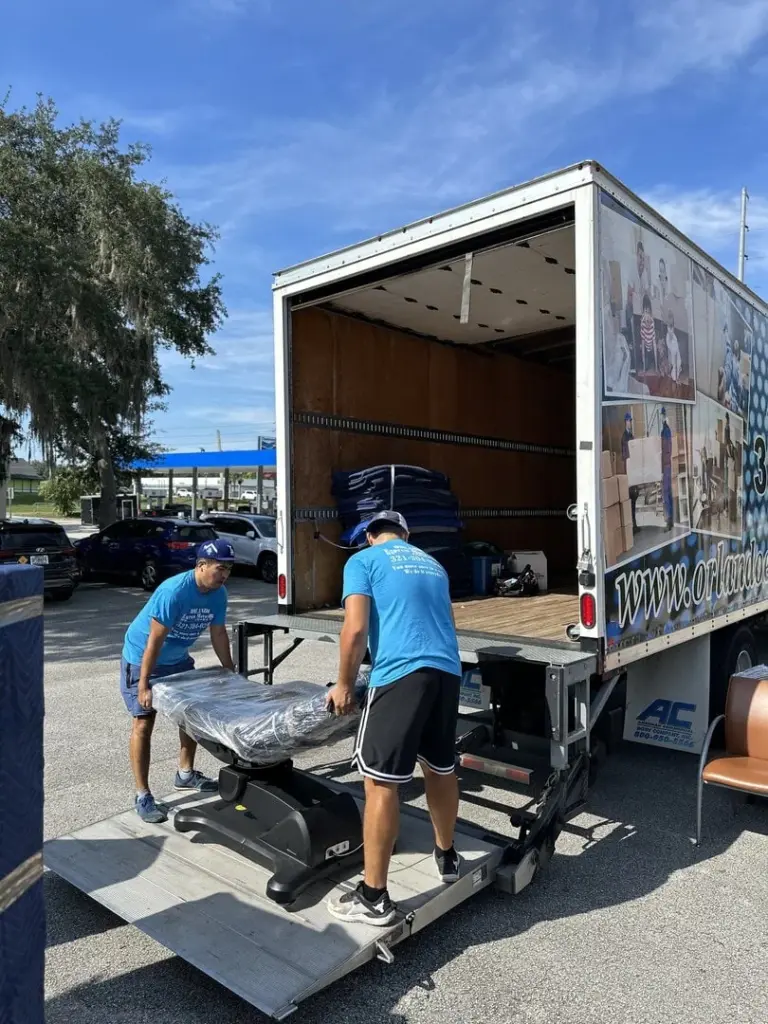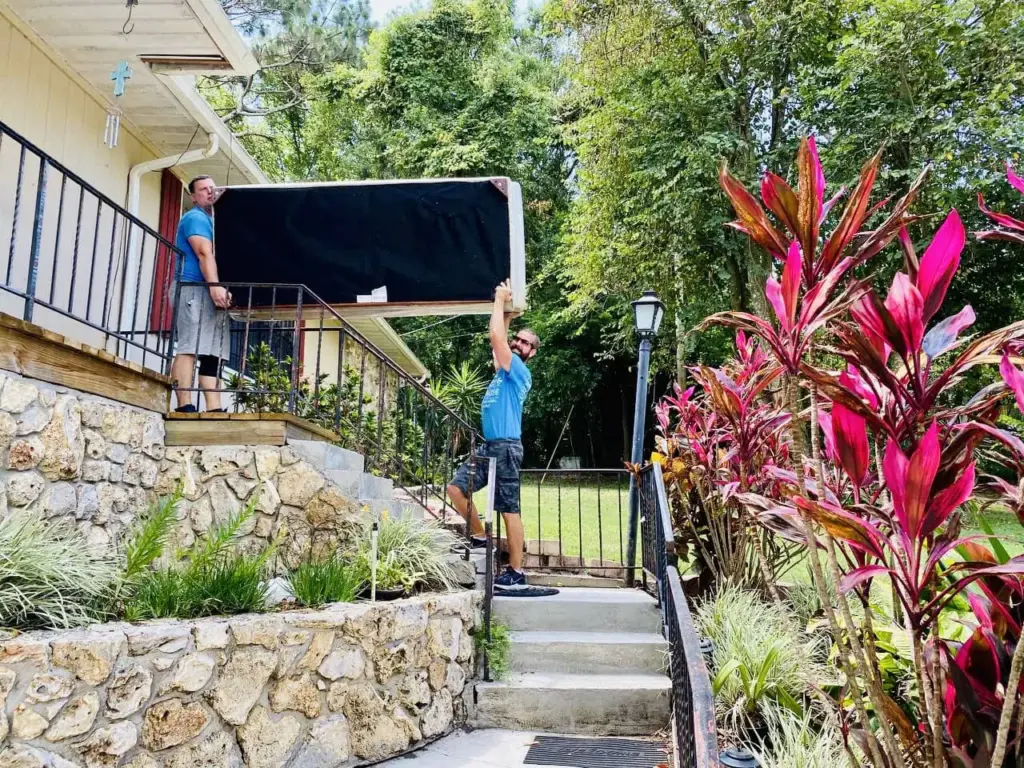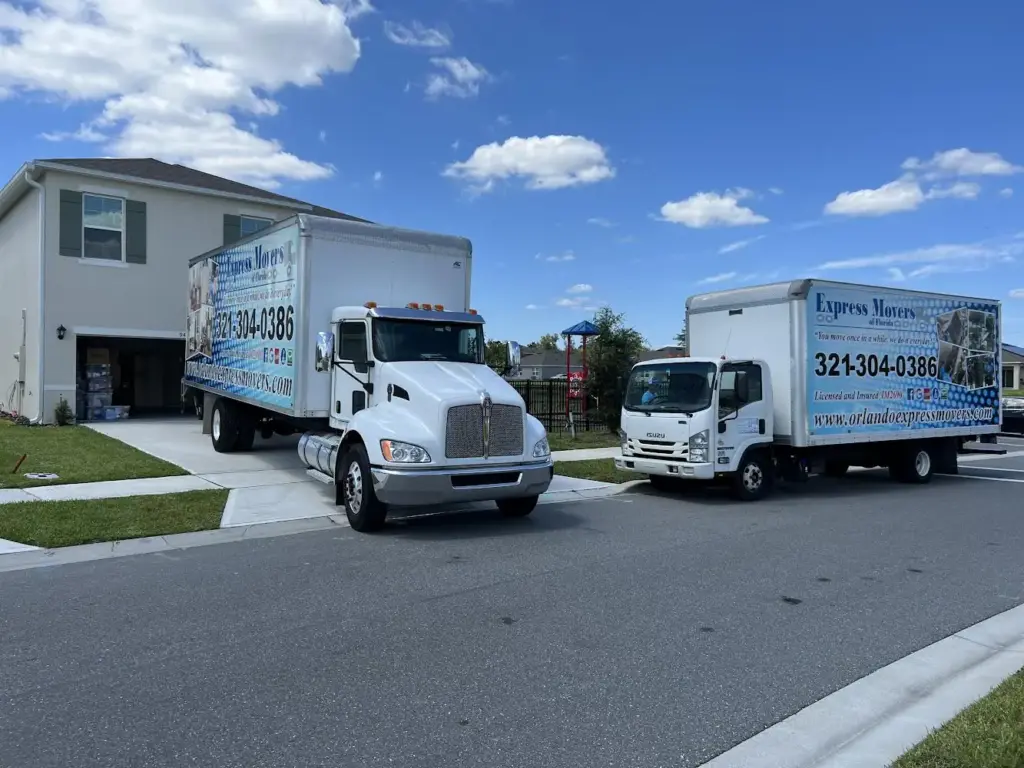Moving to a new home is exciting, but it can also be financially stressful—especially when unexpected costs start appearing on your final bill. That initial moving quote might look reasonable, but industry data shows that most people end up spending 20-30% more than their original estimate due to “hidden” fees they didn’t anticipate.
After years of helping Orlando residents relocate, we’ve seen every surprise charge imaginable. Here’s your comprehensive guide to understanding the true cost of moving and how to budget for expenses that often catch people off guard.
What’s Actually Included in Your Moving Quote?
Before we dive into hidden costs, let’s clarify what standard moving quotes typically cover—and what they don’t.
Usually Included:
- Loading and unloading services
- Transportation between your locations
- Basic liability coverage
- Standard moving equipment like dollies, straps, and blankets
Often NOT Included:
- Packing services and materials
- Specialty item handling (pianos, artwork, safes)
- Long carry charges for difficult access
- Storage fees
- Comprehensive insurance coverage
The key to avoiding surprises? Always request a detailed written estimate that clearly outlines what’s included and what might trigger additional charges.

Packing Materials: The Expense You Can’t Skip
One of the most underestimated costs is packing materials. Most people assume they’ll need a few boxes from the grocery store, but a typical household move requires significantly more supplies than expected.
Average industry costs for packing materials:
- Quality moving boxes: $2-5 each (expect to need 20-40 for a typical home)
- Bubble wrap: $25-50 per roll
- Packing paper: $30-60 per bundle
- Specialty boxes for wardrobes or dishes: $8-15 each
- Tape, markers, and labels: $20-40 total
For a standard three-bedroom home, you’re looking at $150-300 just in packing supplies. A helpful rule of thumb: plan for one medium box per room, plus specialty boxes for dishes, clothes, and books.
Last-Minute Packing Services:
If you run out of time and need professional packers, expect to pay $25-40 per hour per packer. Rush charges for same-day requests can add even more to your bill. The best way to avoid these costs? Start packing early—at least 2-3 weeks before your move date.
Specialty Items Come with Specialty Fees
That beautiful grand piano or antique armoire requires special handling, and movers charge accordingly.
Typical industry rates for specialty items:
- Piano moving: $200-800 depending on type and distance
- Hot tub or pool table: $300-600
- Artwork and antiques: $100-500
- Wine collections: $150-300
These items require extra equipment, additional movers, or specialized skills, which is why they’re not included in standard quotes. Always mention these items upfront during your estimate so they can be properly accounted for in your budget.

Access Challenges That Cost Extra
Your home’s accessibility can significantly impact your final moving bill, and many people don’t realize they’ll be charged for these common situations.
Long Carry Charges:
When movers can’t park within 50-100 feet of your door, you’ll typically face long carry fees of $50-150 per additional 50 feet. This is especially common in:
- Urban areas with limited parking
- Gated communities
- Large apartment complexes
- Properties with long driveways
Stair Charges:
Moving companies usually charge $25-50 per flight of stairs for local moves. This applies to both your current location and your destination, so a move from a third-floor walkup to another third-floor apartment could add $300-500 to your bill.
Elevator Reservations:
Some buildings charge fees for elevator use during moves, ranging from $50-200. Additionally, buildings may require advance reservations and certificates of insurance from your moving company.
The best way to avoid surprise access fees? Walk through both locations with your mover during the estimate and point out any potential challenges.
Timing Is Everything
When you move matters almost as much as what you’re moving.
Peak Season Premiums:
Summer months (June through August) see the highest demand for moving services, resulting in:
- 20-30% higher rates compared to off-season
- Limited availability and less negotiating power
- Weekend moves costing 10-20% more than weekdays
Rush Charges:
Booking with less than two weeks’ notice typically incurs a 15-25% premium. Same-week moves or holiday period relocations can cost even more due to limited availability and high demand.
Overtime and Delays:
If your move extends beyond the estimated timeframe, you may face overtime charges. Orlando traffic can be unpredictable, and being unprepared on moving day (not having items packed, needing to make last-minute decisions) can cause delays that increase your costs.
Money-saving tip: Book your move at least 4-6 weeks in advance for the best rates. If you have flexibility, moving on a Tuesday or Wednesday during off-peak months can save you hundreds of dollars.
Insurance: Don’t Assume You’re Covered
This is perhaps the most misunderstood aspect of moving costs, and it can be the most expensive mistake you make.
Basic Liability Coverage:
Most moving quotes include basic coverage, but here’s what that actually means: approximately $0.60 per pound of damaged items. That 50-pound flat-screen TV you bought for $1,500? You’d receive about $30 if it’s damaged. Your 25-pound laptop? Around $15.
Basic coverage provides almost no meaningful protection for your valuable belongings.
Full Value Protection:
This comprehensive coverage typically costs 1-2% of your shipment’s declared value but provides replacement cost coverage. For a $50,000 shipment, you’d pay $500-1,000 for full protection—well worth it if you’re moving valuable items.
Third-Party Insurance:
Sometimes more comprehensive than mover-provided options, third-party insurance may be more cost-effective for high-value shipments. Research your options well before moving day.
Don’t wait until your belongings are loaded on the truck to think about insurance. Review coverage options during booking and make sure you understand exactly what’s protected.
The Real Cost of DIY Moving
Many people consider renting a truck and recruiting friends to save money. But when you add up all the costs, DIY moving often costs more than you’d expect—and comes with significant risks.
Hidden DIY Moving Expenses:
- Truck rental: $30-300 per day plus mileage charges
- Fuel (moving trucks get 6-10 mpg): $50-200+ depending on distance
- Equipment rental (dollies, straps, furniture pads): $40-100
- Packing materials: $100-300
- Food and drinks for helpers: $50-150
- Time cost (your hourly wage × hours spent)
- Potential injury or property damage: $500-5,000+
The Professional Advantage:
Professional movers work 2-3 times faster than DIY attempts, reducing the time cost significantly. They also bring:
- Experience that reduces damage risk
- Insurance coverage
- All necessary equipment
- Physical capability without injury risk
When you factor in your time at your regular hourly wage, professional moving services often cost less than DIY—especially when you consider the reduced stress and injury risk.
Essential Questions for Transparent Pricing
Protect yourself from surprise charges by asking these specific questions when getting moving quotes:
About Fees:
- What circumstances trigger additional charges?
- How do you handle access difficulties or unexpected delays?
- What’s your policy on overtime charges?
- Are there any fees not included in this written estimate?
About Insurance:
- What exactly does basic coverage protect?
- What are my options for additional coverage, and what do they cost?
- What’s your process for handling damage claims?
About Timing:
- What’s your policy if the move takes longer than estimated?
- How do weather delays affect pricing?
- What constitutes a “rush” move requiring additional fees?
Reputable moving companies welcome these questions and provide clear, detailed answers. Be cautious of any company that seems evasive about pricing details.
Your Orlando Moving Budget Checklist
To accurately budget for your move, include these line items:
- Base moving quote: $____
- Packing materials: $150-300
- Professional packing (if needed): $____
- Specialty items: $____
- Access fees (stairs, long carry): $____
- Additional insurance: $____
- Peak season/timing premiums: $____
- Contingency fund (10% of total): $____
Total Realistic Budget: $____

Planning Your Orlando Move with Confidence
Understanding the true cost of moving helps you budget accurately and avoid financial stress during an already challenging time. The key is transparency—both in what moving companies tell you and in your honest assessment of what your move requires.
At Orlando Express Movers, we believe in honest, upfront pricing with no hidden surprises. Our detailed estimates clearly outline all potential charges, and we work with you to understand your specific needs and budget constraints before moving day.
Ready for a transparent, honest moving quote? Contact Orlando Express Movers today for a detailed estimate that includes all potential costs. We’ll help you plan a budget that covers everything you need for a successful move—with no unpleasant surprises on moving day.
Call us today to discuss your upcoming move and receive a comprehensive, itemized quote that accounts for your specific situation.
